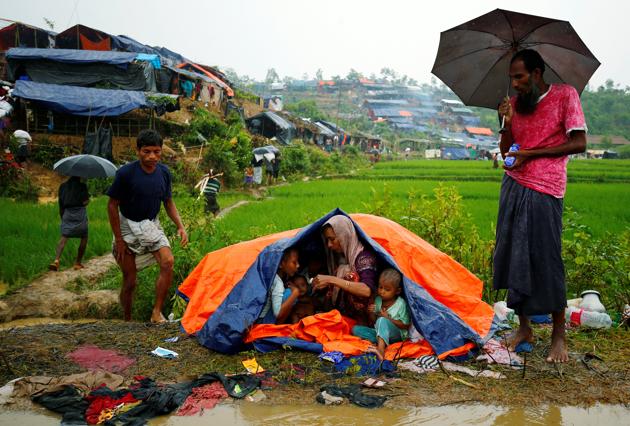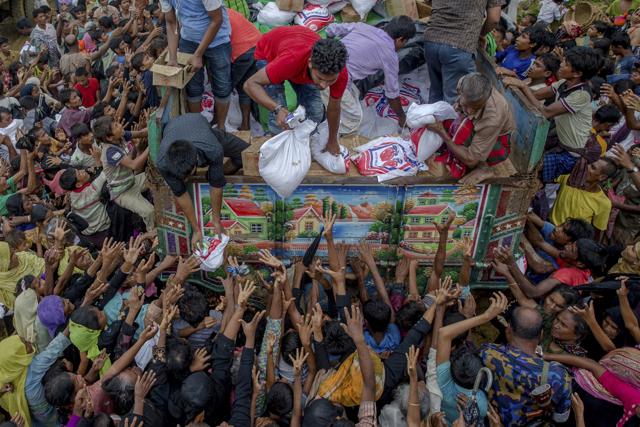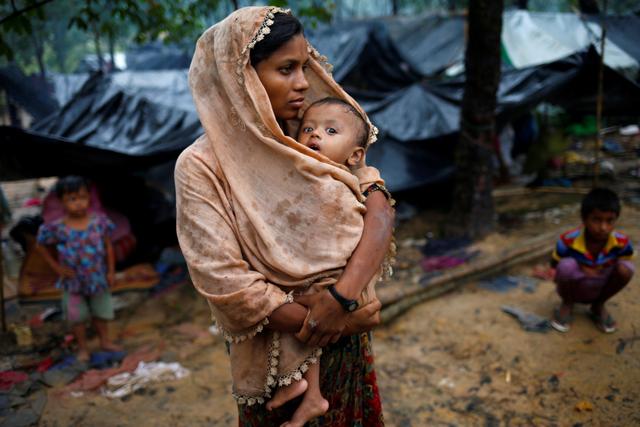More Rohingya have fled to Bangladesh since Aug 25 than in the last two decades
The number of Rohingya who fled to Bangladesh since August 25 is also more than the total number of refugees who fled by sea to Europe in 2016.
Over the past two decades, some 400,000 Rohingya Muslims fled Myanmar and took refuge in Bangladesh. In just the past three weeks, more than that number have poured into Bangladesh after a crackdown by the Myanmar Army, taking the total number to more than 800,000.

The United Nations has estimated that since August 25, when Myanmarese troops launched the crackdown in Rakhine following militant attacks on police posts and an army base, more than 410,000 refugees have sought shelter across the border.
A UN Refugee Agency (UNHCR) factsheet on Bangladesh, published in March 2017, stated that 233,228 Rohingya were living in Bangladesh. But these are only official numbers — Bangladesh’s envoy to India Syed Muazzem Ali told Hindustan Times earlier this week that around 400,000 Rohingyas had taken refuge in Bangladesh over the past two decades.
For a further comparison, the number of Rohingya who fled to Bangladesh since August 25 is more than the total number of refugees who fled by sea to Europe in 2016 — the UNHCR reported 362,000 refugees landed on European shores last year.
With the number of new arrivals swelling by several thousand every day, Bangladesh is struggling to provide food, water and shelter to the refugees, more than half of whom are children.

“After being subjected to horrific violence, including killings and having their villages burned to the ground, these Rohingya refugees are now facing a humanitarian crisis as Bangladesh struggles to support them,” said Amnesty International secretary general Salil Shetty.
Another worry is the security crisis that these large number of arrivals pose. Intelligence agencies have long reported that groups such as the Jamaat-ul-Mujahideen Bangladesh and the Lashkar-e-Taiba have established links with the Arakan Rohingya Salvation Army, a Rohingya militant group.
Even the Bangladesh envoy admitted that the refugees could “fall victim to the various organisations who are trying to destabilise the region”.
The Rohingya, a distinct ethnic group settled in Myanmar’s Rakhine state, have never been considered citizens by the government in Naypyidaw, which refers to them as “illegal migrants”. Thus, this stateless group is one of the most desperately poor and subjugated in the world, and is often subject to violence by the Myanmar military.

The scale of violence has led UN secretary general António Guterres to refer to the campaign by the Myanmar military as “ethnic cleansing”.
Also under fire is Myanmar’s state counsellor Aung San Suu Kyi — a Nobel Peace laureate — who’s near-silence on the crisis and failure to condemn the actions of the army has led to calls of her being stripped of the prestigious prize.





